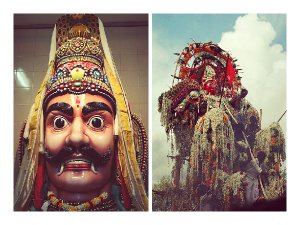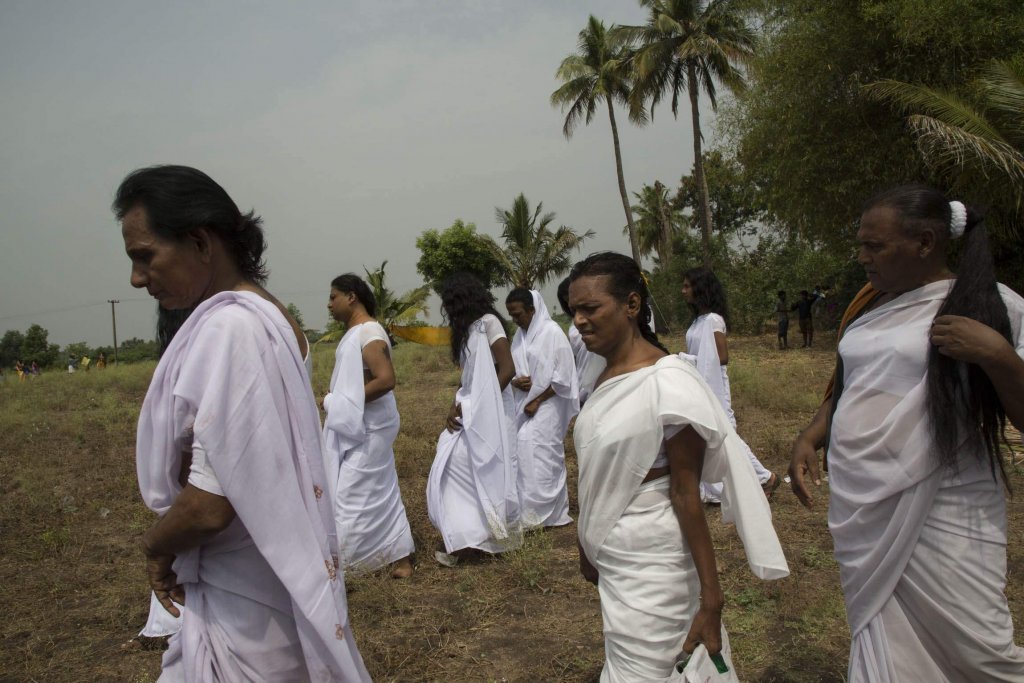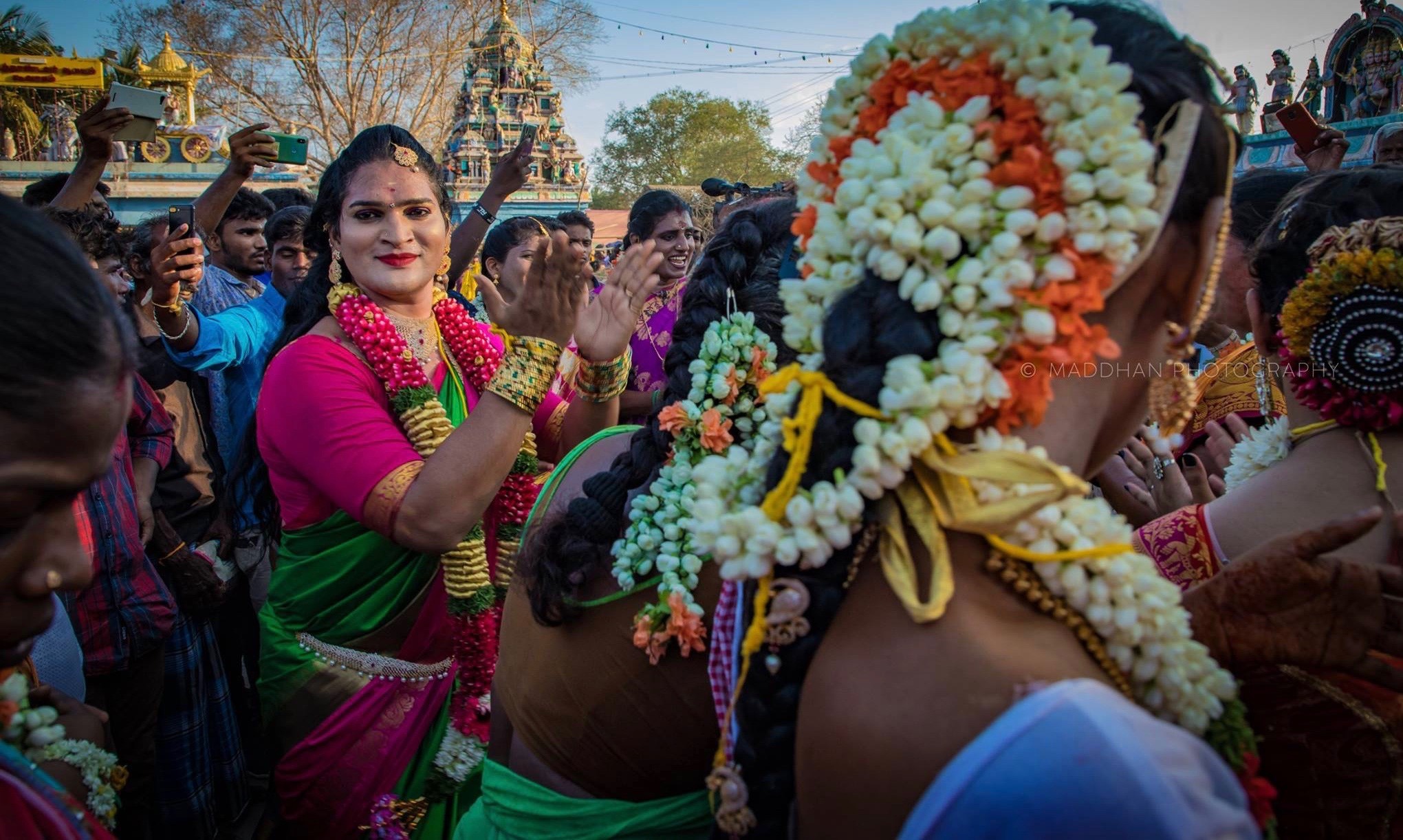With you still rejoicing your earworm of Swift’s ‘You Need To Calm Down’, LGTB is much more than just a term since these couple of past few years. With the discard of section 377, even India isn’t lagging to provide these rights to its citizens. But even before this, a peculiar celebration is enjoyed in Tamil Nadu with its origins in the Mahabharata…
Koovagam and it’s festival of transgenders –
Koovagam, a village in the southern Indian state of Tamil Nadu has this idiosyncratic festival of the transgender community. It is normally celebrated for about 18 days in the summer months of April and May. This festival isn’t just popular in the transgender community, but also among many cultural enthusiasts all over the nation.
Story of origin and it’s correlation with Mahabharat –

According to the epic, the Pandavas get to know a prediction that they would be defeated in the war against the Kauravas. To avoid the loss, they had to sacrifice a human to the Goddess Kali. Aravan, son of Arjun and princess Ulupi agreed to be the sacrifice under one condition. He wanted to die after experiencing marital happiness. But, no king was ready to give his daughter’s hand in the hand of such a man who’s going to be dead. So, Lord Krishna transformed himself into Mohini and married Aravan, after which he was sacrificed.
It is believed that the transgender community is the lineage of Lord Aravan. This explains why transgenders are thought of as divine beings in India.
The celebration –
The first 16 days are full of fun, engaging activities. Beauty pageants, dances, songs, and games are held.

Then, on the 17th day, all the transgenders play the role of Mohini and marry Aravan, thus becoming his wives. These transgenders are hence, called as ‘Aravanis’.
The next day they morn and wail over the death of Aravan. They even wear white sarees, and cry, and rip off their clothes and jewellery.

This festival is of huge importance to the transgender community. In this world of both hate and love, this festival acts a medium of joy and happiness.



